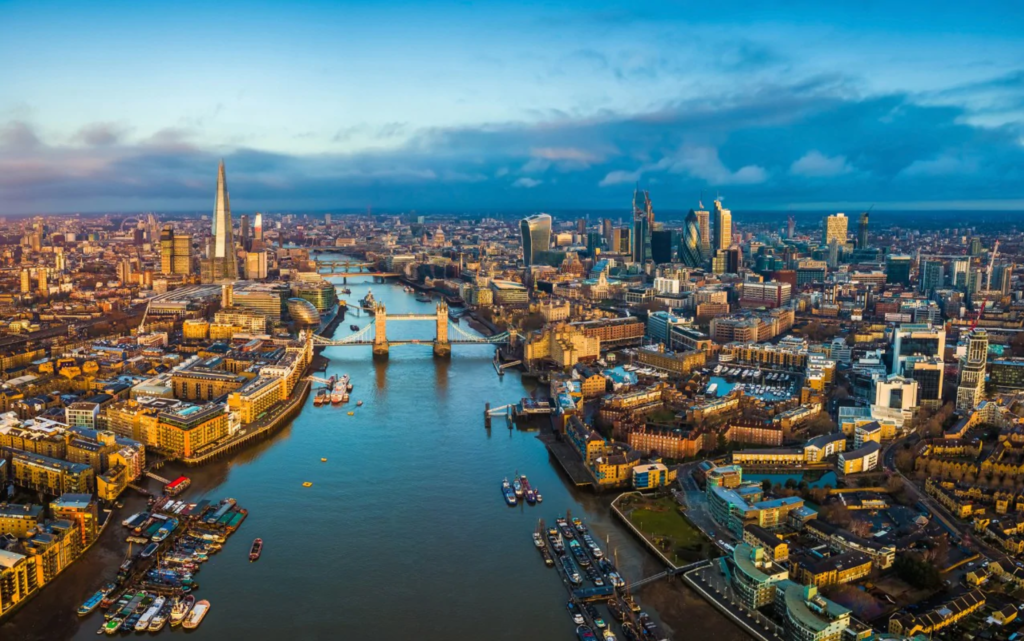London: Profile of a Global City

Founded by the Romans around 47 A.D., London has long been a major world city with connections developed over centuries through international trade and commerce. London was the world’s largest city throughout most of the Industrial Revolution of the 19th century and into the 20th century. Today London retains global influence through its financial services sector and its cultural “soft power.”
The city is one of only two Alpha++ cities in the world; the other being New York City. There are over 70 ethnic communities and 300 distinct languages spoken in London. Many of these languages originated from countries that belonged to the former British Empire: India, Pakistan, Nigeria, Cyprus, Somalia, and the Caribbean.
Challenges facing London include increasing inequality, housing shortages, rent increases, and a high cost of living. The departure from the European Union—dubbed as Brexit—adds to uncertainty and fragility of the city’s economic and social disparity.
The church in London, however, is growing fast especially among the Black Majority and immigrant groups. Three-fifths of churches in the city consider themselves evangelical. Two-thirds of London’s churchgoers are between the ages of 15 and 65. Opportunities exist for workplace mobilization and kingdom impact in London.
Pictures Source: Wikimedia Commons, the free media repository.
